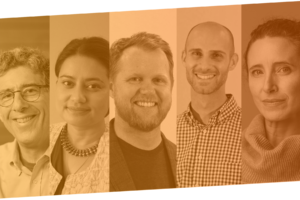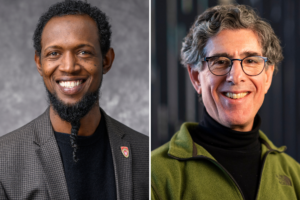A PBS/NOVA documentary on the nature of human happiness, premiering this week, features University of Wisconsin-Madison professors Seth Pollak and Richard Davidson. “This Emotional Life” will air on PBS in three episodes at 8 p.m. CST Jan. 4-6.
Pollak’s research on the importance of early childhood experience in brain development and establishing relationships is featured in the first episode, “Family, Friends & Lovers,” which will air today (Jan. 4).
“Children’s early social experiences help them learn about emotions. Forming relationships with other people isn’t something that happens automatically; it’s something they have to work at,” says Pollak.
In the show, a child adopted from a Russian orphanage by a Wisconsin couple talks candidly about his troubles bonding with his new family and why he chose to participate in Pollak’s research at UW-Madison.
The episode also features the influential work of Harry Harlow, a UW-Madison psychology professor from 1930-74 who demonstrated the importance of companionship and family bonding for social development in rhesus macaques.
Davidson appears in the third episode, “Rethinking Happiness,” which will air Wednesday, Jan. 6. The show highlights his research into the neural basis of happiness, studying patterns of brain activation in people who describe themselves as happy.






